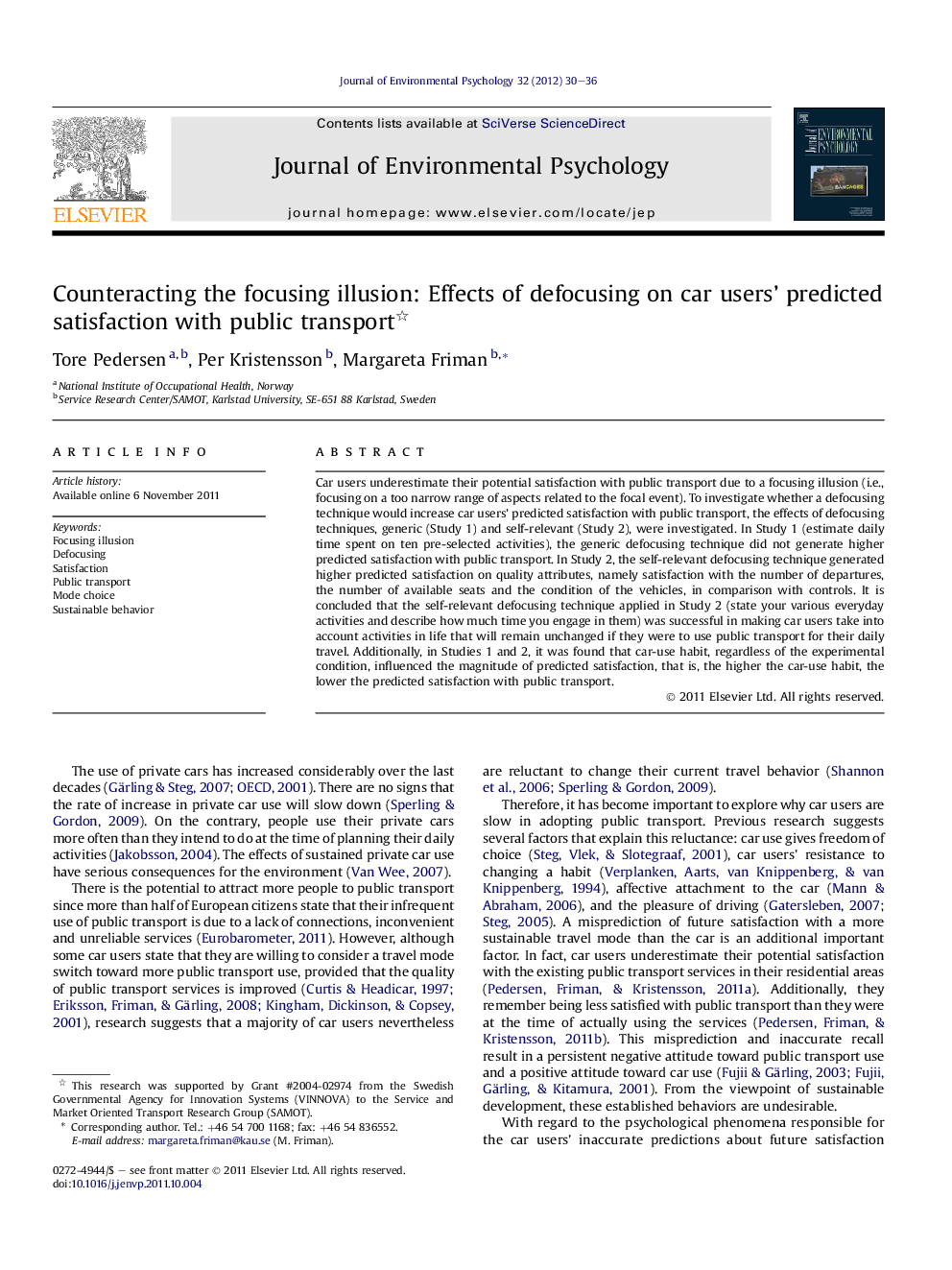ترجمه فارسی عنوان مقاله
مقابله با خطای حسی تمرکز: اثر متمرکز کردن در خشنودی پیش بینی شده کاربران ماشین با حمل و نقل عمومی
عنوان انگلیسی
Counteracting the focusing illusion: Effects of defocusing on car users’ predicted satisfaction with public transport ☆
| کد مقاله | سال انتشار | تعداد صفحات مقاله انگلیسی |
|---|---|---|
| 77556 | 2012 | 7 صفحه PDF |
منبع

Publisher : Elsevier - Science Direct (الزویر - ساینس دایرکت)
Journal : Journal of Environmental Psychology, Volume 32, Issue 1, March 2012, Pages 30–36
ترجمه کلمات کلیدی
خطای حسی تمرکز ؛ تارکردن؛ رضایت؛ حمل و نقل عمومی؛ انتخاب حالت؛ رفتار پایدار تمرکز
کلمات کلیدی انگلیسی
Focusing illusion; Defocusing; Satisfaction; Public transport; Mode choice; Sustainable behavior

